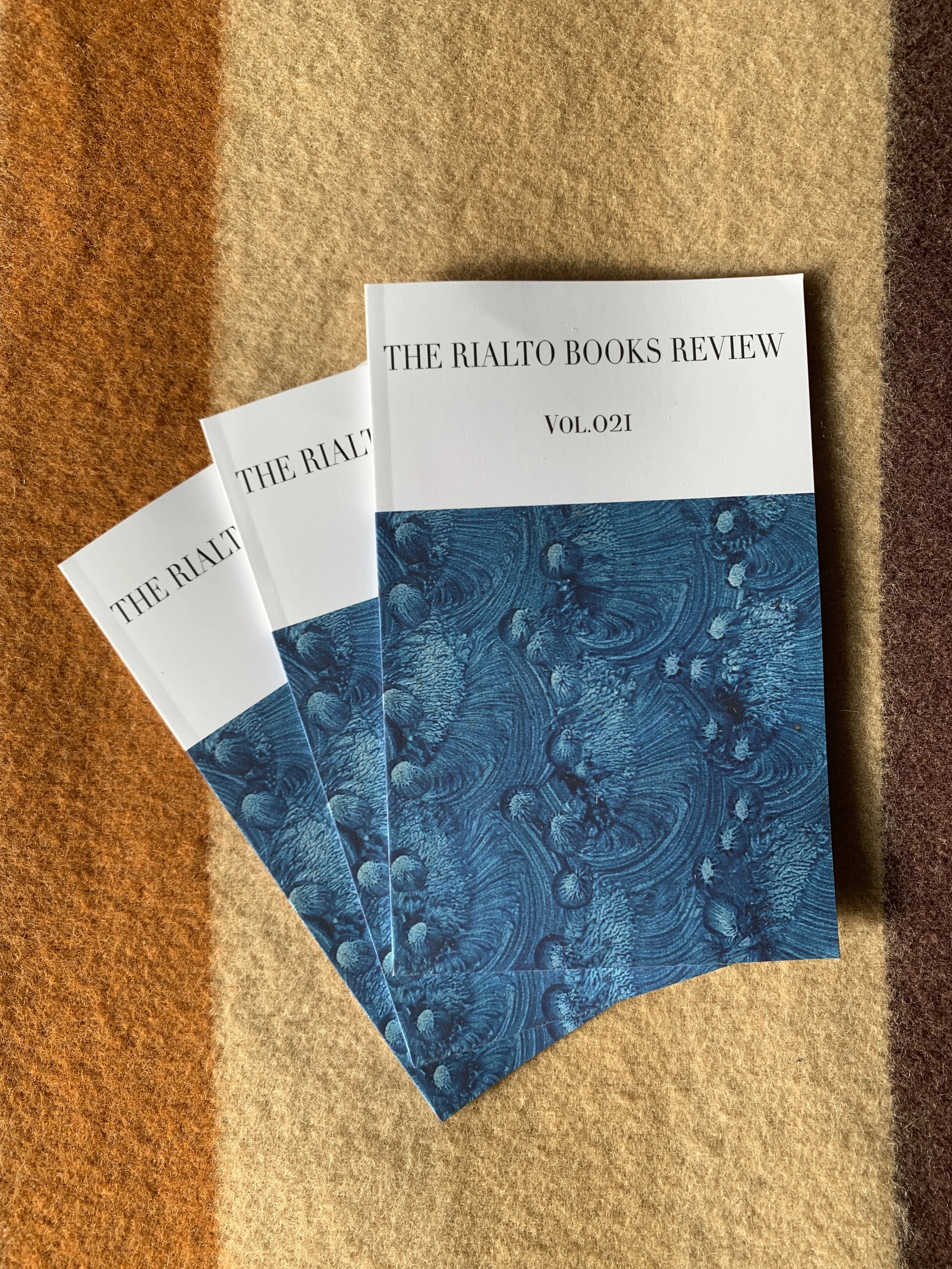The Rialto Books Review Vol.022--AVAILABLE NOW
Buy The Rialto Books Review Vol. 022 here.
Buy a 12-month subscription to The Rialto Books Review here.
The Rialto Books Review Vol. 022 includes a short story by Jeffrey DeVries, poetry by Joseph Teti and Adam Kozak, and fiction by Alexandra Ranieri and Russell Block.
Please enjoy these excerpts from The Rialto Books Review Vol. 022.
The Last Time I Ever Saw Jimmy Molloy
by Jeffrey DeVries
Jimmy let us watch, but no one was allowed to touch. No one but him and Fritz, his six year-old brother. That was the rule. While they took turns playing Pong, the rest of us could sprawl on his family room floor and watch. Other than Fritzie, we all went to Hickory Creek Middle School. Jimmy played catcher on our little league team, and he had all his own equipment—chest protector, mask, shin guards, the works. His dad owned a small chain of local grocery stores, and he gave Jimmy everything. But Jimmy couldn’t hit a lick, and he wasn’t much of a catcher either—anything in the dirt was past him and he had a wuss arm. Other teams could steal on him all day. Still, his TV set had Pong.
Vignette from Tieck by Joseph Teti may be found in Vol.022.
Aqua Aeterna by Adam Kozak may be found in Vol.022.
The Lighthouse, Part V
by Alexandra Ranieri
The sensation I underwent in that moment, forbade me to question, or even to speak. After a few moments, however, I was master enough of myself to ask, “Was it after this that Robert—” I hesitated to finish the sentence, so close as I felt my own state to the old man’s.
She nodded. “I tried to tell myself he was just an old fool, but lately—I’ve felt differently.”
Here she gave me a look of meaning, and when I would not repulse her look by word or otherwise, she leaned forward.
“Listen—there’s a dock by the boathouse, about half a mile North. It’s kept in good repair. It looks like a clear night; I could get a boat down there, say, midnight?”
The League of Berries and Laurels
Chapter VI
Christmas
by Russell Block
For a time, Francis was a radiant presence within the household, as he was within the folds of the family, and in the world at large, seeming ever relaxed, and often he joined his two younger brothers, and the twins, in the den to watch the cartoons of Japan. His cadet uniform, worn when he returned home and all were glad to see him, his father’s brooding anger the lone notable exception, has since been pressed and laundered to remove the salt stains about the hem. It hangs in the sparse closet of his sparse room. Despite its resplendence, it will not be donned until the time arrives for Francis to depart the frame of this house once more by morning’s light, looked upon with the same admiration as was afforded his arrival, for San Diego. His laughter was, for a time, more profound than his sibling’s, who are at an age that the cartoon was designed to amaze, rather than underwhelm. The villain’s continuous and awesome transformation into ever more refined and lethal forms struck him, in particular, as false; the alien fighter’s ability to meet these demands by finding ever more reason to fight, falser. It was later, as they were watching professional wrestling, a product that was forbidden in the house until Francis had control of the remote, and for which the twins were still led to their room, obligingly, one step at a time, that Ulie began to notice another aspect. Pale, agitated, and sweaty was this.
You can read this journal with others on Papertrail.






